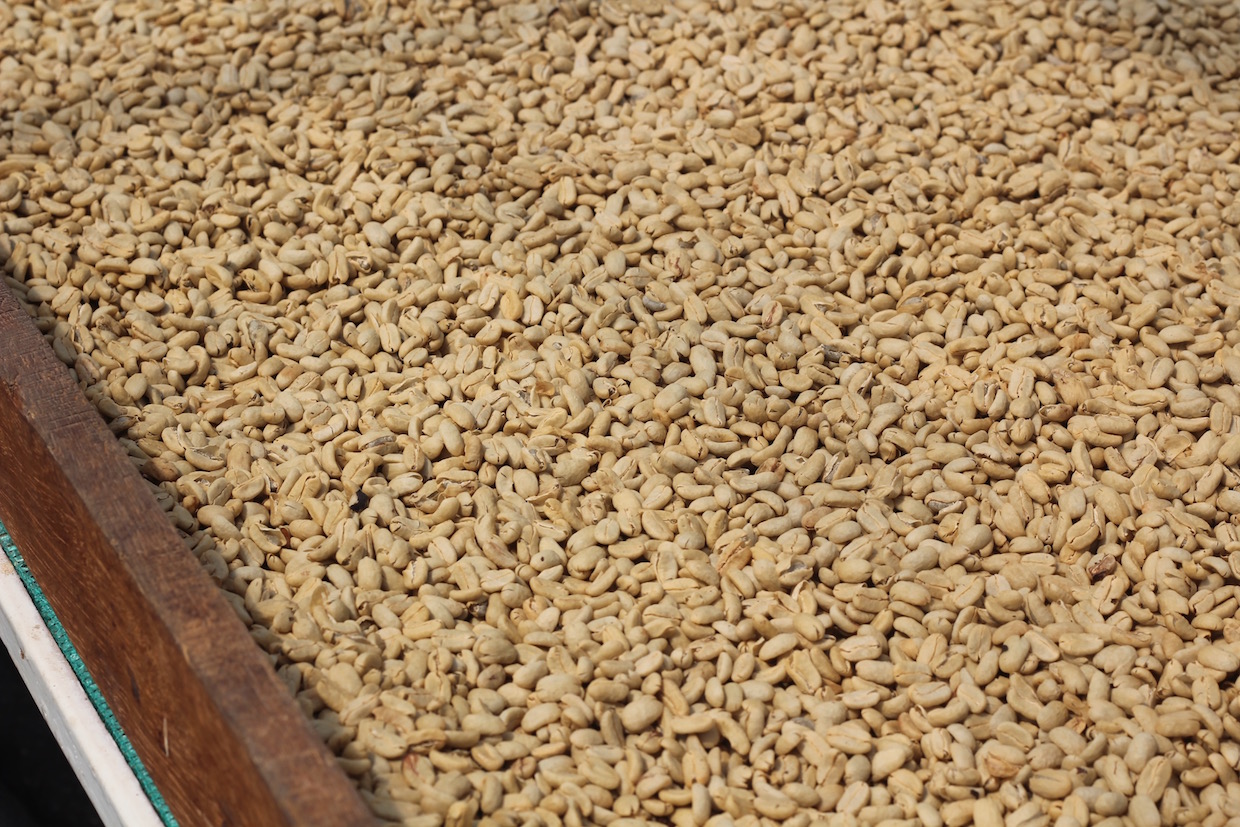Daily Coffee News photo by Nick Brown.Electric roaster maker Bellwether Coffee, the nonprofit Heifer International and green coffee trader Sustainable Harvest this morning announced a new pricing model that transparently ties green coffee purchases to living income benchmarks for coffee farmers.
The organizations described the purchasing model, called Verified Living Income (VLI), as a groundbreaking approach within a historically commodities-price-driven coffee sector that has entrenched untold millions of coffee producers in poverty since it was first commercialized.
The groups suggested the model might serve to equalize the power dynamics that have historically made coffee producers “price takers,” while providing direct economic boosts to farmers and building more sustainable supply chains.
The model incorporates the living income benchmarking methodology that has been refined by Heifer International. A pilot for the Verified Living Income project took place with the participation of 38 smallholder coffee farmers from the ASOPEP cooperative in Tolima, Colombia, with which Portland, Oregon-based Sustainable Harvest has maintained a trading relationship.
Green coffee being loaded into the Bellwether roaster owned by Rootless Coffee in Flint, Michigan. 2021 photo by Hayley Seibel, courtesy of Rootless Coffee.
The pilot study settled on an average cost of production of $1.33 per pound of green coffee. In order for the growers of that coffee to receive a living income, the study found, the prices paid would have to be $2.24 per pound Free on Board (FOB), and $1.89 at the “farmgate.”
“We all know and love the coffee these farmers produce, but people don’t realize the downward price spiral farmers are stuck in. Coffee can be a poverty trap, simply because the farmers who grow it are not paid adequately for their very valuable products,” Cory Gilman, strategic initiatives manager of coffee and commodities at Heifer International, said in today’s announcement. “We believe products like coffee are not sustainable unless they are tied to living incomes at origin. Coffee companies have a big opportunity to help end poverty in growing regions by paying verified living income prices, and our methodology shows it’s possible.”
Related Reading
Based on the Tolima study, Bellwether Coffee has agreed to increase prices paid to ASOPEP by 20%, signing a contract that guarantees $2.24 FOB. Bellwether, which has raised at least $50 million in capital within the past three years, says it has also committed to implementing living-income-based pricing throughout its supply chain, beginning with all its coffees purchased from Latin American producers. With its core electric roasting machine product, Bellwether offers a platform for green coffee procurement and inventory management.
Because of its tendency to lead to a baseline rather than a ceiling, the concept of living income identification among farmers has become a controversial topic in the field of coffee sustainability. That said, the vast majority of the world’s coffee remains tied directly to the commodities market — or C market price — a reality that has historically benefitted the biggest buyers and consumers in the global north while ensnaring millions of people at the other end of the supply chain in poverty.
The VLR project is the latest attempt among some more progressive coffee traders and coffee-adjacent organizations to fundamentally untie green coffee purchasing from the C market price based on local market realities and the broader pursuit of supply chain equity.
“At Sustainable Harvest, our most fundamental belief is that the traditional coffee supply chain must change, and more value needs to shift toward coffee farmers,” Sustainable Harvest Director of Sales Monica Terveer said in today’s announcement. “This has been our mission for nearly 25 years and Verified Living Income now provides an additional actionable standard that more roasters can adopt. The industry has a new opportunity to discover a Living Income price that can assure a sustainable supply chain for years to come; our role will be to help them navigate how to get there.”
Nick Brown
Nick Brown is the editor of Daily Coffee News by Roast Magazine. Feedback and story ideas are welcome at publisher (at) dailycoffeenews.com, or see the “About Us” page for contact information.




